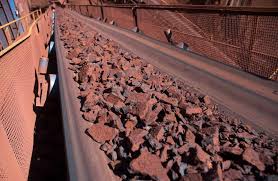The decision to keep Chinese factories shut after the Lunar New Year sent shudders through the giant mines of Brazil and Chile that feed them. Now, with China getting back to work and Latin America the new virus hotspot, concern is shifting from demand to supply.
Iron-ore shipper Vale SA had a scare last week as it had to fend off an attempt by Brazilian prosecutors to close a complex that accounts for a tenth of its output. A union at copper behemoth Codelco said members are concerned that a still small outbreak of the virus will spread.
Alarm bells are starting to ring again in metal markets as the outbreak explodes in Latin America, with the region’s highly urbanized population of 600 million accounting for about 40% of daily deaths globally. That’s coming at a time when Chinese demand is recovering and markets tighten. Chile is the top exporter of copper and Brazil is the second-largest shipper of iron ore.
“Mine supply problems from Covid-19 in Latin America are far from over yet,” Wenyu Yao, senior commodities strategist at ING Bank, said by phone from London. “Chile is a big unknown now.”
So far, mining heavyweights like Vale and Codelco have managed to continue operating through the outbreak, adopting measures to keep workers safe without forsaking output. Other mines in the region that did shut are now reopening. But the industry has been helped by relatively low rates of illness in the wider populations. That’s no longer the case.
On Friday, spot iron ore surged past $100 a ton as worries that the pandemic may curb Brazilian supply coincide with sustained, robust demand in top steel producer China. Futures now look set to hit that level, too, with the contract in Singapore advancing for the past four days.
Brazil surpassed the U.S. in new coronavirus cases last week, and the disease is now spreading in northern states such as Para, which accounts for 8% of global iron ore supply. In April, Vale cut its shipment guidancedue to bad weather and the virus’s impact on operations.
The disease has also reached Brazil’s meat-processing industry, with JBS SA ordered to shut operations at a plant in Rondonia state last week in the country’s first beef-facility closure. Brazilian oil has also been hit, with nearly 500 confirmed cases and one death among offshore workers, although production hasn’t been impacted.
Compounding Brazil’s health disaster is a potential political crisis. Protesters clashed on the streets of Sao Paulo Sunday and President Jair Bolsonaro joined a demonstration against Congress and the Supreme Court.
“The Covid-19 outbreak in Brazil creates tangible risks to iron ore supply over the upcoming weeks, despite mining being allowed to operate as essential business,” Citigroup Inc. analysts including Tracy Liao wrote in a report. “Rising infections among workers may prompt the miners or local authorities to impose more draconian quarantines, which could limit productivity or even close mines.”
Meanwhile, port stockpiles of iron ore in China have continued to decline and Chinese steel demand has improved notably over the past two months, reflected by inventory drawdowns. Even though prices may stay elevated for longer, Citigroup maintains its bearish view, forecasting prices to fall to $70 a ton by the end of 2020, with Vale expected to manage the outbreak well.
In a response to questions, Vale reiterated annual production guidance of 310 million to 330 million tons, which factors in pandemic risks such as higher absenteeism and the possibility of tighter restrictions in Brazil. The company has also offered financial support to its supply chain and imported health equipment for regions where it operates. Like Codelco, Vale has implemented social-distancing measures, workplace disinfection, screening and testing.
(Source Bloomberg)
